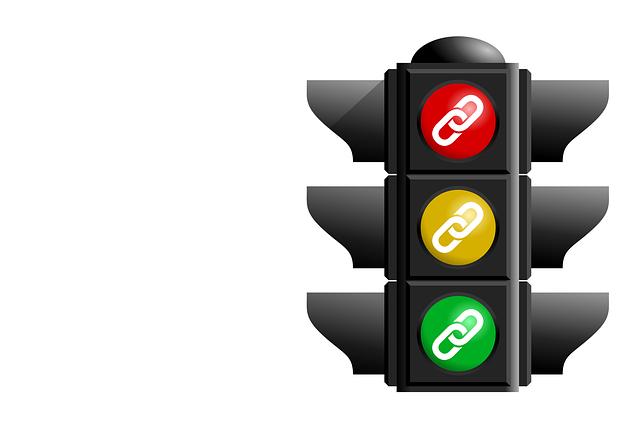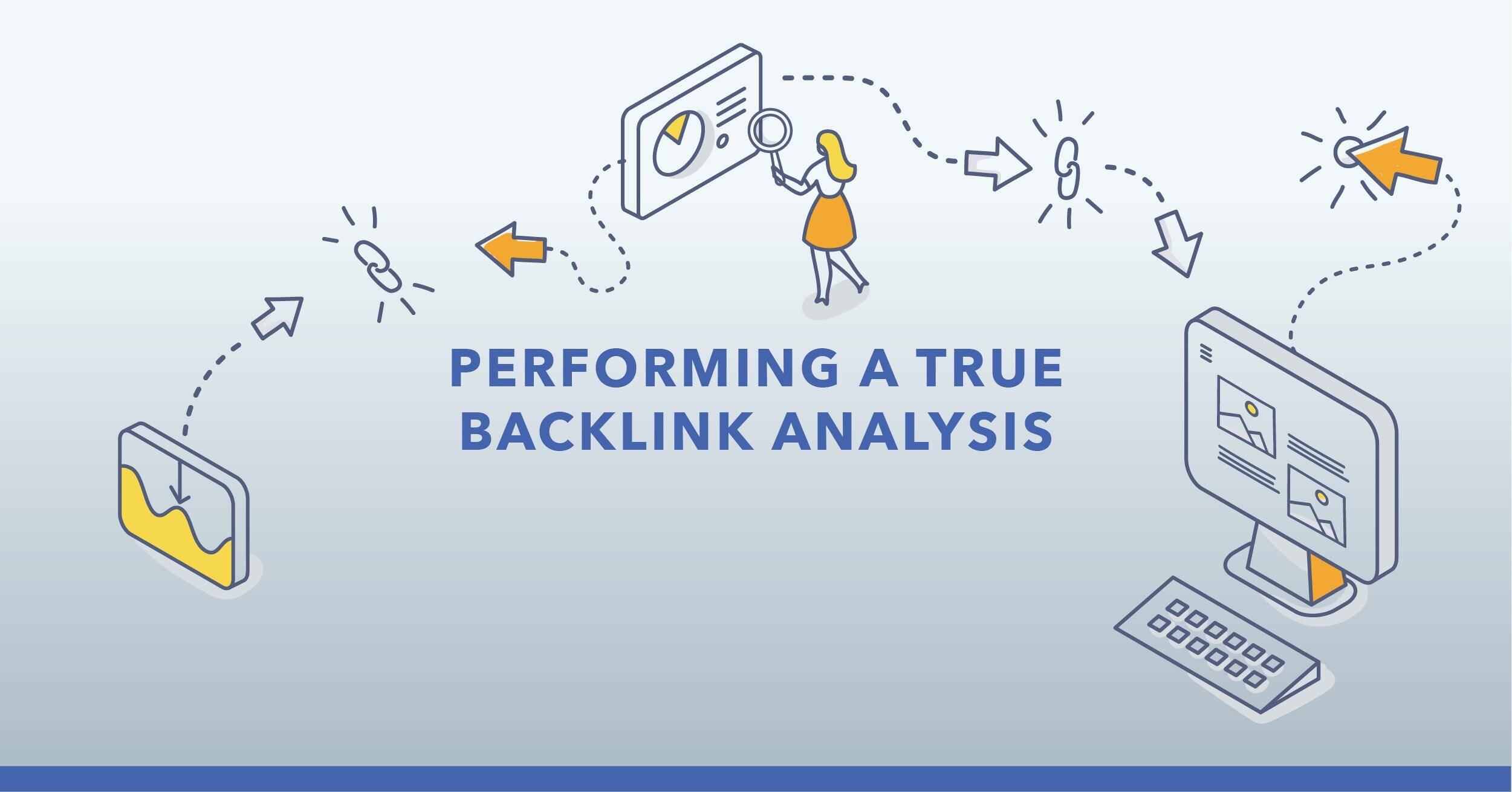Features section
Add advertising hereIn the vast and ever-evolving landscape of digital marketing, where websites emerge and fade like stars in the night sky, one crucial factor determines which sites shine the brightest: backlinks. Picture them as the lifelines that connect one corner of the internet to another, weaving a tapestry of authority, trust, and relevance. For website owners striving to enhance their visibility and climb the ranks of search engine results, mastering the art of backlink building is not just a strategy—it’s a necessity. In this guide, we will demystify the intricacies of backlink building, offering insightful tips and techniques that can definitely help you navigate the frequently enough confusing world of SEO. Whether you are a seasoned professional or just starting your online journey,understanding the fundamental principles of backlinks will empower you to cultivate a robust online presence and foster sustainable growth for your website.Join us as we explore the essential steps to transform your site into a credible digital destination, where users and search engines alike will feel compelled to linger and engage.
Table of contents
- Strategies for Identifying High-Quality Backlink Opportunities
- Crafting Compelling Content That Attracts links
- Harnessing the Power of Outreach for Effective Link Building
- Measuring Success: Tools and Metrics for Backlink Analysis
- Q&A
- The Conclusion

Strategies for Identifying High-Quality Backlink Opportunities
Identifying high-quality backlink opportunities requires a keen understanding of your niche and an analytical approach to potential websites. Start by examining competitor backlinks; tools like Ahrefs or SEMrush can reveal where others in your field are gaining their links. Look for websites that share a similar audience demographic and content scope. Prioritize websites with high domain authority, relevant content, and genuine engagement. Engaging with industry influencers through social media platforms or blogs can also uncover valuable link prospects, as their recommendations can significantly boost your profile. To further refine your search, consider leveraging content marketing tactics that naturally attract backlinks. Creating in-depth guides or engaging infographics can make your website a go-to resource. Here are some elements to focus on when assessing backlink opportunities:
- Relevance: Ensure that the content aligns with your niche.
- Authority: Check the domain authority using tools like Moz.
- Engagement: Look for active user interaction through comments and shares.
- Traffic: Evaluate the site’s weekly or monthly visitors via alexa or SimilarWeb.
Additionally, you can create a simple evaluation matrix to score potential backlink sources based on these criteria:
| Website | Domain Authority | Relevance Score | Engagement Level |
|---|---|---|---|
| example.com | 85 | 9/10 | high |
| anotherexample.com | 70 | 8/10 | Medium |
| yetanotherexample.com | 60 | 7/10 | Low |
This systematic approach helps ensure that your efforts lead to backlinks that not only enhance your SEO but also add meaningful value to your website’s credibility and reach.

Crafting Compelling Content That Attracts Links
To attract quality backlinks, the cornerstone lies in producing content that resonates with your audience.It’s essential to understand what your target demographic values and then curate content that addresses these interests. Engaging formats, such as infographics, listicles, and how-to guides, can serve as excellent vehicles for conveying details while also capturing attention. You can elevate your content’s appeal by incorporating captivating visuals and interactive elements, which encourage users to share your work across their networks. Moreover, aligning your content with current trends and popular topics within your niche can significantly increase its chances of garnering links from other sites.
Featured section
Add advertising hereOnce you’ve crafted your compelling content, promoting it effectively will maximize your exposure. Consider the following strategies for outreach and engagement:
- Leverage social media channels to share your content.
- Reach out to influencers or bloggers who may find your content valuable.
- Participate in online communities and forums related to your niche.
- Utilize email marketing to notify your subscribers about the new content.
Employing these tactics can definitely help establish connections with other website owners who might potentially be interested in linking back to your work. Here’s a speedy glance at effective content types to consider:
| Content Type | Link Attraction Potential |
|---|---|
| Infographics | High |
| Case Studies | Medium |
| Expert Roundups | High |
| Original Research | Very High |
By focusing on these strategies and utilizing various content formats, you can effectively increase your visibility, encouraging other websites to link back to your exceptional content.
Harnessing the Power of Outreach for Effective Link Building
Outreach is an essential strategy that propels link building into a realm of effectiveness and sustainability. By establishing genuine connections with other website owners, bloggers, and influencers in your niche, you can cultivate relationships that not only lead to valuable backlinks but also foster a supportive community around your brand. The process begins with research: identify potential partners whose content aligns with your own, and also their audience’s interests.This alignment is key to crafting personalized outreach messages that resonate.When reaching out,consider including:
- An engaging introduction: Start with a warm and genuine approach that showcases your knowledge of their work.
- A clear value proposition: Explain what you can offer in return for a backlink,whether it’s a guest post,social media exposure,or a collaborative project.
- A kind CTA: Encourage a conversation, making it clear that you value their input and are open to discussing further possibilities.
Additionally, organizing your outreach efforts can significantly enhance your success rates. Consider using a spreadsheet to keep track of your contacts, dialog status, and any follow-ups needed. This way, you can ensure no potential chance slips through the cracks.Here’s a simple example of what such a tracker might look like:
| Website | Contact person | Date Reached Out | Status |
|---|---|---|---|
| example1.com | Jane Doe | 2023-10-01 | Follow-Up Needed |
| example2.com | john Smith | 2023-10-05 | Awaiting Response |
| example3.com | Emily Johnson | 2023-10-03 | Triumphant collaboration |
Embracing a strategic outreach approach not only bolsters your link-building initiatives but also significantly contributes to forging long-lasting relationships within your industry. In turn, these connections can open doors to further collaborations, networking opportunities, and a more robust online presence. Remember, the essence lies in authenticity; a personalized touch goes a long way in making your outreach endeavors fruitful.

Measuring Success: Tools and Metrics for Backlink analysis
To effectively gauge the success of your backlink strategy, it’s essential to utilize various tools and metrics that deliver insightful data about your link profile. Analytics platforms like Ahrefs, Moz, and SEMrush allow you to track critically important metrics such as Domain Authority (DA), Page Authority (PA), and Link Juice. Understanding these metrics helps you identify the strength and potential value of the backlinks you acquire. When analyzing your backlinks, consider evaluating:
- Referral Traffic: Measure the volume of traffic each backlink generates to your site.
- Link Quality: Assess the relevance and authority of the websites linking back to you.
- Anchor Text Distribution: Examine the effectiveness of the anchor texts used in your backlinks.
Another critical metric to monitor is your backlink growth over time, which can be visualized in an easy-to-understand format. By documenting the total number of backlinks and their types, you can pinpoint trends and areas needing attention.The following table encapsulates a simple overview of backlink types and their meaning:
| Backlink Type | Description | Importance |
|---|---|---|
| dofollow | Links that pass SEO credit to your site. | High |
| NoFollow | Links that don’t pass SEO credit, but can drive traffic. | medium |
| Editorial | Links granted based on quality content and relevance. | Very High |
| self-created | Links you create through forums or comment sections. | Low |
By consistently monitoring these metrics and utilizing the recommended tools, you’ll be well-equipped to refine your backlink strategy for maximum effectiveness.
Q&A
Q&A: Mastering Backlink Building – A guide for Website Owners
Q1: What are backlinks, and why are they important for my website? A: Backlinks are links from one website to another and serve as a vote of confidence. They are crucial for SEO because search engines view them as endorsements of your content. A strong backlink profile can boost your site’s authority, improve search rankings, and drive organic traffic.
Q2: How do I determine the quality of a backlink? A: Not all backlinks are created equal! A high-quality backlink comes from a reputable, relevant website with strong domain authority. Look for links from sites that have established credibility in your niche and generate substantial traffic. Tools like Moz’s domain Authority or Ahrefs’ Domain Rating can help you assess quality.
Q3: What strategies can I use to build backlinks? A: There are several effective strategies you can employ:
- Guest Blogging: Write articles for reputable blogs in your field, including a link back to your website.
- Resource pages: Identify resource pages in your niche, and suggest your site as a valuable addition.
- Skyscraper Technique: Find popular content, create something even better, and reach out to those who linked to the original to suggest your superior content.
- Social Media Engagement: Share your content on social platforms to increase visibility and encourage sharing.
Q4: Should I focus on quantity or quality when it comes to backlinks? A: While it might be tempting to chase after a large number of backlinks, quality should be your primary focus. A few high-quality backlinks from authoritative sites can be far more beneficial than numerous low-quality links. Search engines prioritize relevance and trustworthiness over sheer numbers.
Q5: Are there any techniques I should avoid in backlink building? A: Absolutely! be wary of black-hat SEO techniques that could harm your site’s reputation such as:
- Buying links: Purchasing backlinks can lead to penalties from search engines.
- Link Farms: Participating in networks that promise large numbers of backlinks is a risky gamble.
- Irrelevant backlinks: Gaining links from unrelated sites can confuse search engines about your site’s focus.
Q6: How long does it take to see results from backlinks? A: Patience is key! The time it takes to see the effects of backlink building can vary widely. Generally, it can take anywhere from a few weeks to several months for search engines to recognize and value your new backlinks, depending on factors like site authority and frequency of your content updates.
Q7: Can I track the performance of my backlinks? A: Yes! Tracking the performance of your backlinks is crucial for ongoing optimization. Tools like Google Analytics can show you how much traffic is being referred from backlinks. Additionally,backlinks monitoring tools like Ahrefs and SEMrush can provide insights into your overall backlink profile,including identification of new links,lost links,and keyword rankings.
Q8: What are some common misconceptions about backlink building? A: Many website owners believe that the more backlinks they have, the better their SEO will be. However, it’s the quality, relevance, and authority of those links that truly matter.Another misconception is that backlink building is a one-time task; in reality,it requires ongoing effort and strategy adjustment to maintain and improve your site’s visibility.
Q9: Do backlinks still matter in 2023? A: Yes, backlinks remain as important as ever in the evolving landscape of SEO. Google continues to emphasize the need for credible and trustworthy links as part of its ranking algorithm. As long as search engines exist, backlinks will play a critical role in determining online authority and visibility.
Q10: Where can I learn more about effective backlink building? A: There are abundant resources available! Consider reading SEO-focused blogs, taking online courses, and joining forums dedicated to digital marketing. Staying updated on the latest trends and practices in SEO will also equip you with the knowledge needed to refine your backlink strategy continuously. — By understanding and mastering the art of backlink building, you can enhance your website’s presence and authority, paving the way for sustained growth in traffic and rankings. Happy linking!
The Conclusion
As we draw the curtain on our comprehensive guide to mastering backlink building, it’s time to reflect on the importance of this powerful technique in enhancing your website’s visibility and authority. Building high-quality backlinks is not merely a task; it’s a strategic endeavor that requires nurturing relationships, creating stellar content, and understanding the digital landscape. remember, every link you cultivate is not just a pathway for search engines but a bridge to potential audiences who are eager to discover your offerings. In a world where online presence is paramount, let your backlink strategy be a testament to your commitment to quality and authenticity. As you embark on this journey, stay curious, be adaptive to changes in the digital sphere, and continue to prioritize the principles that foster genuine connections. The adventure of backlink building is just beginning, and with the right approach, you can turn it into a thriving foundation for your online success. Happy linking!





